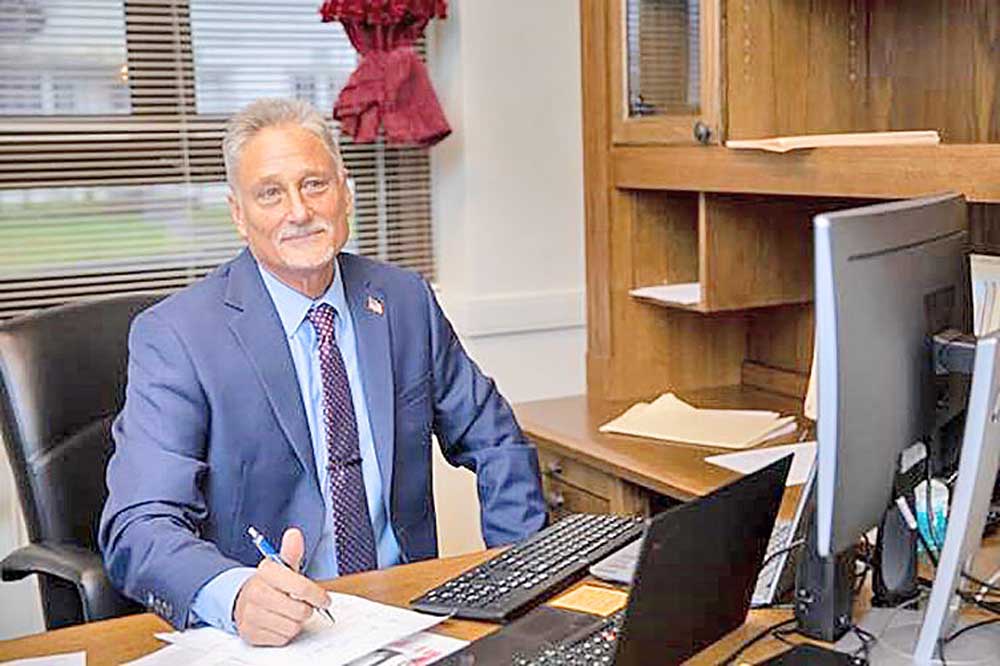19th LD legislators prefile flurry of bills
Published 11:36 am Thursday, December 19, 2024

- State Sen. Jeff Wilson, R-Longview, successfully sponsored environmental testing legislation.
OLYMPIA — The upcoming session of the Washington State Legislature doesn’t begin until next month, but Southwest Washington’s legislators are already pushing forward a host of bills they hope to see become law in 2025.
Trending
As of last week, 19th District legislators had prefiled 17 bills ahead of the 2025 legislative session that is set to begin Jan. 13. Some 172 bills in total had been filed ahead of time in either the House or Senate thus far, which range from regulating when a pet insurer can cancel a policy to exempting all homeowners over the age of 75 from paying property taxes.
The 19th District’s own state Sen. Jeff Wilson (R-Longview) has been one of the more prolific prefilers this year, putting forward 13 bills already for consideration. State Rep. Jim Walsh (R-Aberdeen) has filed four bills ahead of time, while state Rep. Joel McEntire (R-Cathlamet) has not yet prefiled any.
Wilson’s bills
Two of the bills that Wilson first filed earlier this month call for Washington to “ditch the switch” and make Pacific Standard Time permanent, as well as formally adopt “The Evergreen State” as the state nickname.
Aside from that, Wilson, who serves as the top-ranking Republican on the Senate State Government, Tribal Affairs and Elections Committee, filed a bill that would direct Washington’s secretary of state to create and administer a grant program to purchase and install cameras around ballot drop boxes. This program would only be available for county auditors and election directors, although counties would not be able to use the funds for ongoing operational costs of the cameras.
Another election-related bill from Wilson would require ballot drop boxes to “prominently display” what county or county agency it was purchased, placed by and is property of, as well as a notice that tampering with the drop box may be a violation of state and federal elections laws.
Wilson also prefiled a bill that is co-sponsored by a Democratic colleague that would require the Washington State Department of Transportation to develop and maintain a publicly available map on its website that identifies where temporary political campaign signs are allowed to be placed along state highways and other main road systems. The map would identify locations where signs are prohibited because of a state highway right-of-way, and where signs on any adjoining private or public land are permitted due to their proximity to a major road system.
Another bill of his that has been co-sponsored by a Democrat in the senate would require the state Department of Ecology to establish sampling or testing requirements by July 2027 for PFAS synthetic chemicals in biosolids, with an analysis of PFAS chemical levels and a subsequent report to the legislature due in 2028. These “forever chemicals” have been used in consumer and industry products for decades and have increasingly been linked to health and environmental concerns.
Other bills prefiled by Wilson, if passed, would:
- Expand the state’s battery stewardship program to include electric vehicle batteries;
- Designate Nov. 22 as “kimchi day;”
- Prohibit public protests within 25 feet of a person collecting signatures for any initiative or referendum petition.
Walsh’s bills
Of the bills introduced by Walsh so far, one actually made significant progress during recent legislative sessions but was not ultimately passed and signed into law.
Walsh has revived a bill he filed in both 2023 and 2024 that would allow property owners to designate land on their property as a family burial ground. The bill, which passed the House both years but was not put up for a vote in the Senate, would require owners to record every burial on the grounds within 30 days with the county auditor.
Walsh has previously said the bill would preserve “a cherished Western tradition” and the request originated from several groups, including tribal members, who live in the 19th District.
Another bill prefiled by Walsh would allow courts to impose a tougher sentence for the “knowing delivery or distribution of fentanyl,” which also applies to the chemicals used to manufacture fentanyl. Longer sentences could also be imposed on those who distribute counterfeit substances containing fentanyl that cause “substantial bodily harm, permanent impairment to cognitive functions, or death of another person.”
The bill was initially introduced in 2024 but did not make it out of committee.








